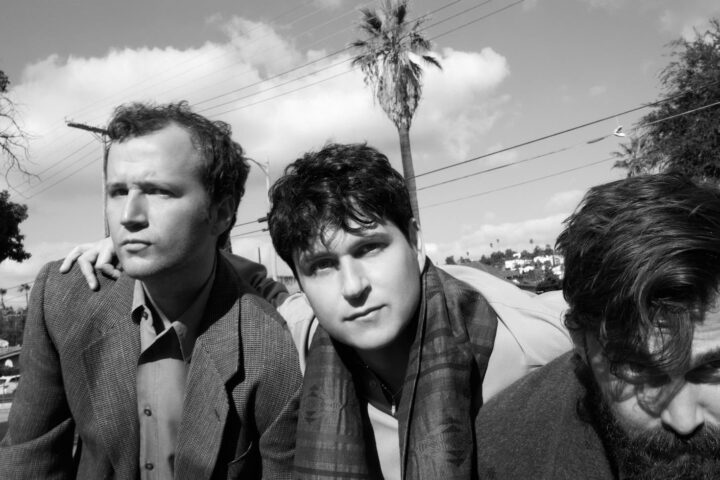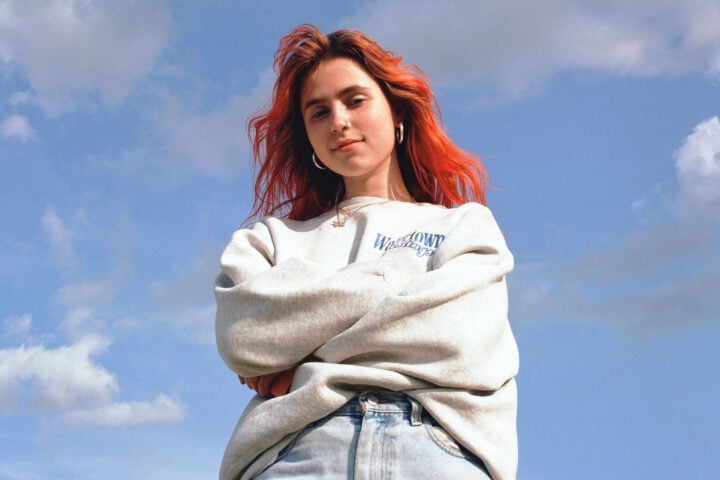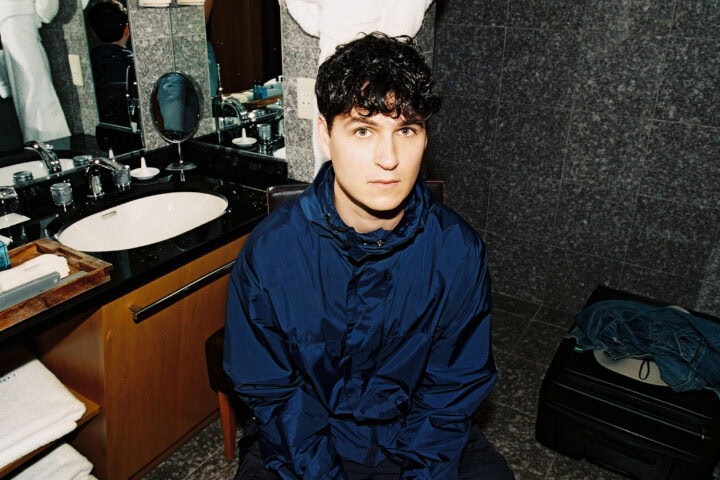Despite what the title of his sophomore album, Changephobia, might suggest, Rostam Batmanglij’s artistic achievements have been defined by his embrace of variety, exploration, and change. Batmanglij is a stylistic omnivore whose work with Vampire Weekend has exhibited forward-thinking genre flexibility, resulting in thrilling instrumental shifts between songs. Batmanglij embellished his solo debut, 2017’s Half-Light, with distortion that obscured his voice but also cast a warmth that unified the album’s disparate musical ideas. His vocal delivery was similarly sunny; for much of Half-Light, it sounds as if Batmanglij is on the verge of laughter. Between the fuzz and playfulness, that album captures an intrepid optimist diving headlong into the liberating unknown of a solo career.
Changephobia aims to explore doubt and fear—even the dimensions of the album’s cover are narrow and confining—but Batmanglij never fully shakes his signature lightness. The album’s arc can be summed up as a movement from anxiety about change to an embrace of it. The opening track, “The Kids We Know,” is global in scale and apocalyptic in tone, declaring that the world’s youth will “slowly pull the Earth back together,” but aside from the lyrics, you’d hardly know that the mellow, unusually stripped-back song is about climate change. And Batmanglij largely abandons politics for love: “Next Thing” signals his acceptance of change through a pattern of shifts in tempo and tranquil lyrics about the passing of seasons, and by the end of the album, he seems to have come to terms with his lack of control over the future.
There’s little strife in these songs to substantiate this change, but what Changephobia lacks in dramatic heft it makes up for in emotional openness and sumptuous sonic textures. “From the Back of a Cab” details Batmanglij’s “dread” at leaving his lover at the airport, but its swooning melody and wistful keyboard make it one of the album’s most overtly romantic and heartfelt moments. This travel motif carries over to “4Runner,” about a road trip in which Batmanglij pauses to revel in moments of intimacy, notably omitting details about the journey’s climax. In contrast to the sultry saxophone, jazzy cool, and strikingly self-aware lyrics of songs like the title track and “To Communicate,” the boisterous noisiness of “Kinney” and the breakbeat instrumental “[Interlude]” best convey the sense of movement that underlies the album’s narrative.
At its best, Changephobia displays Batmanglij’s earnestness and penchant for unexpected combinations of sounds. On “Next Thing,” he charmingly rhymes “California” with “We’ve got to warn ya,” and the tactility of the album’s instruments—such as the drums and slightly out-of-tune piano on “Bio18”—is filtered thoughtfully through progressive electronic processing. The album closes with “Starlight,” a ballad that sounds as dreamy as its name suggests. “I’m coming up from underwater,” Batmanglij sings, bathed in distant choral voices, astral synths, and aqueous reverb. With the album’s final few drumbeats, what lingers is a feeling of calm, a refined elaboration on the youthful giddiness of Half-Light. While Batmanglij has reduced the vast variety of sounds and distortion of his debut, the warmth of his vision remains.
Since 2001, we've brought you uncompromising, candid takes on the world of film, music, television, video games, theater, and more. Independently owned and operated publications like Slant have been hit hard in recent years, but we’re committed to keeping our content free and accessible—meaning no paywalls or fees.
If you like what we do, please consider subscribing to our Patreon or making a donation.




